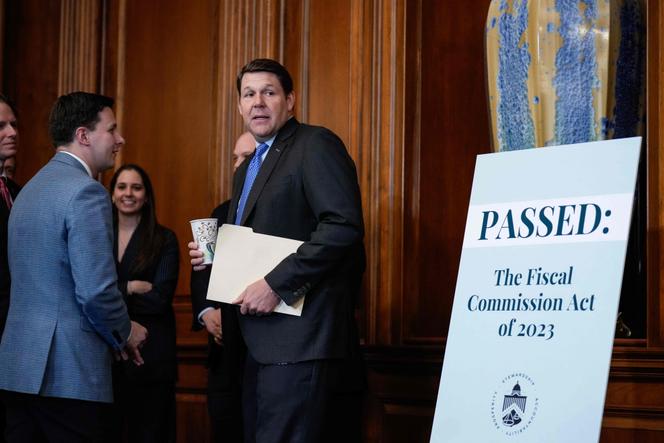


Congress sent President Joe Biden a short-term spending bill on Thursday, January 18, that would avert a looming partial government shutdown and fund federal agencies into March. The House approved the measure by a vote of 314-108, with opposition coming mostly from the more conservative members of the Republican conference. Shortly before the vote, the House Freedom Caucus announced it "strongly opposes" the measure because it would facilitate more spending than they support. Nevertheless, about half of Republicans joined with Democrats in passing the third stopgap funding measure in recent months. The action came a few hours after the Senate had voted overwhelmingly to pass the bill by a vote of 77-18.
The measure extends current spending levels and buys time for the two chambers to work out their differences over full-year spending bills for the fiscal year that began in October. The temporary measure will run until March 1 for some federal agencies. Their funds were set to run out on Friday. It extends the remainder of government operations to March 8.
White House press secretary Karine Jean-Pierre said the president would sign the resolution and urged Republicans to quit wasting time on partisan spending bills. "House Republicans must finally do their job and work across the aisle to pass full-year funding bills that deliver for the American people and address urgent domestic and national security priorities by passing the President’s supplemental request," Jean-Pierre said.
Speaker Mike Johnson, R-La., has been under pressure from his right flank to scrap a $1.66 trillion budget price tag he reached with Senate Majority Leader Chuck Schumer earlier this month for the spending bills. Representative Chip Roy, R-Texas, said the continuing resolution passed Thursday will facilitate that agreement, and urged colleagues to vote against it. "It's Groundhog Day in the House chamber all the time, every day, yet again spending money we don't have," Roy said. Johnson has insisted he will stick with the deal, and moderates in the party have stood behind him. They say that changing course now would be going back on his word and would weaken the speaker in future negotiations.
The short-term measure comes amid negotiations on a separate spending package that would provide wartime dollars to Ukraine and Israel and strengthen security at the US-Mexico border. Johnson is also under pressure from the right not to accept a deal that is any weaker than a House-passed border measure that has no Democratic support.
Johnson, Schumer, and other congressional leaders and committee heads visited the White House on Wednesday to discuss that spending legislation. Johnson used the meeting to push for stronger border security measures while Biden and Democrats detailed Ukraine’s security needs as it continues to fight Russia. Biden has requested a $110 billion package for wartime spending and border security.
